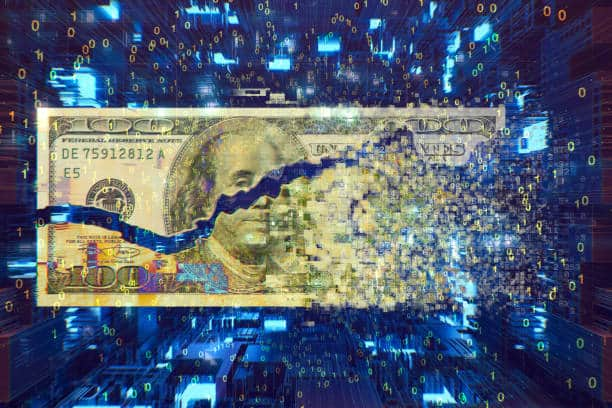Luna Coin Future Cooperation and Development Program
In the world of cryptocurrencies, Luna has always been an attention-grabbing presence. As the market continues to change, Luna's future cooperation and development plans are also emerging. Recently, the Luna team has made a number of new moves to expand its partners and strengthen its ecosystem. These moves not only have the potential to change Luna's market positioning, but also have investors looking forward to its future development. In this article, we'll take a closer look at Luna's future partnership and development plans to help you understand the long-term value and potential of the program.

Enhancing cross-chain collaboration: Luna's integration with other blockchains
Luna Coin will strengthen its cooperation with other blockchain platforms in the coming years, which will not only help enhance the scalability of its ecosystem, but also provide more application scenarios for its users. According to the currently publicized plans, Luna will strive to achieve interoperability with mainstream blockchains such as Ether, Boca, Solana, etc., so that Luna Coin can circulate freely among multiple platforms and conduct cross-chain transfer of assets. This cooperation will significantly reduce the cost for users to transfer assets between different chains and enhance transaction efficiency.
The Luna team is also actively seeking more collaboration opportunities with the Decentralized Finance (DeFi) space to bring more revenue opportunities to Luna holders through co-development of DeFi applications. As cross-chain technology continues to mature, Luna's ecosystem will flourish and attract more developers and users.
Expanding the Smart Contract Platform: How Luna is Building Decentralized Apps
More than just a cryptocurrency, Luna is committed to building a complete decentralized application (DApp) ecosystem. Moving forward, Luna will be expanding its smart contract platform, which will be one of the key drivers of its growth. Through an open development environment, Luna will attract more developers to build decentralized applications, thus enhancing the utility and market competitiveness of Luna's blockchain.
The Luna Coin team will optimize the performance of smart contracts to increase transaction speed and reduce transaction costs. This is particularly important for Decentralized Finance (DeFi) projects, where transaction efficiency and costs directly impact user experience and return on investment in the DeFi ecosystem, Luna's smart contract platform will provide developers with more functionality and increase the scalability of the system, laying the groundwork for the popularization of DApps.
Partner Expansion: How Luna is Strengthening Connections with Business Organizations
The development of Luna is not limited to the blockchain field, it is also actively expanding its cooperation with business organizations. By establishing strategic partnerships with large corporations, financial institutions, and technology companies, Luna hopes to combine blockchain technology with real business needs to enhance the practical application of cryptocurrency.
For example, the Luna team is working with a number of traditional financial institutions to develop blockchain solutions that will lead to greater acceptance of cryptocurrency payments and blockchain technology, and Luna is also exploring opportunities with e-commerce platforms to expand the Luna Coin into more consumer scenarios, where it can be utilized by users to make purchases of goods or other payment actions. Such business expansion will help increase the liquidity and market recognition of Luna Coin.

Luna's governance model: a realization of decentralized decision making
The development of the Luna coin is inseparable from the promotion of decentralized governance. In the future, the Luna team will further improve its governance mechanism to allow more Luna holders to participate in the decision-making process, thus enhancing the transparency and participation of the ecosystem. Through the governance of tokens, holders can vote for important technology upgrades or partners, realizing a truly decentralized operation.
This governance model not only allows users to play a role in the direction of the project, but also helps to increase the cohesiveness and activity of the community as a whole. With the gradual expansion of the Luna ecosystem, governance will become an important force in driving its development.
Technology Innovation: How Luna stays blockchain competitive
In order to stand out in the highly competitive blockchain space, Luna Currency must constantly innovate its technology to enhance the security, scalability and transaction efficiency of its network. In the future, the Luna team plans to further enhance the performance of its blockchain and explore more blockchain-based innovations, such as Zero Knowledge Proof (ZKP), sharding technology, etc. These innovations will help improve the overall efficiency and scalability of the Luna blockchain.
As blockchain technology continues to evolve, Luna Coin will increase its investment in technology R&D to maintain its competitive edge in the market. In the future, Luna will not only outperform existing blockchain platforms in terms of performance, but also stay one step ahead of the curve in driving innovative applications.
Frequently Asked Questions Q&A
Q1: How does Luna Coin's cross-chain collaboration work?
Luna's cross-chain collaboration relies heavily on advanced blockchain interoperability technologies that allow Luna to seamlessly flow assets and data with other mainstream blockchain platforms (e.g., ethereum, boca, solana), enabling more efficient transactions and asset management.
Q2: Is Luna's Smart Contract Platform easy to use?
Luna's smart contracting platform is designed to be simple and easy for developers to integrate and deploy.Luna provides rich development tools and documentation support to enable developers to quickly get started and develop decentralized applications (DApps).
Q3: How can I participate in Luna's governance?
Luna's governance system is based on a decentralized voting mechanism, where Luna holders can participate in project decision-making by holding governance tokens to vote on future technology upgrades and partnership options.














